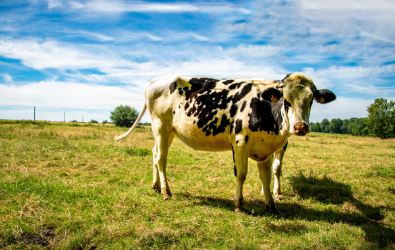Chobani, and other socially responsible companies that are taking action to address problems in their own industries, are the heroes of the Business As A Force For Good movement.
I’m not a fan of dairy for reasons that span from animal welfare to the negative impact the cattle industry has on the environment. While at the Conscious Capitalism CEO Summit in Austin last week, I learned of yet another reason to be disturbed by impact that the farming industry has on people and the planet.
According to Chobani Founder and CEO Hamdi Ulukaya, 50 percent of farm workers in America are undocumented immigrants who left their countries to earn money on U.S. farms knowing they’d never see their families again. “Think about that when you go to the market to buy a gallon of milk,” Ulukaya said to a captivated audience of more than 200 Conscious Capitalism CEOs.
Ulukaya was there with Paul Rice, founder and CEO of Fair Trade USA. The two have joined forces to create Milk Matters™, a standards and certification program for the dairy industry that focuses on six key issues: environmental stewardship, animal care, worker wellbeing, local sourcing, economic opportunity in dairy communities, and freedom and flexibility for fairy farms.
What I like most about this program is that it is transparent and honest. Chobani, which clearly uses a lot of milk to create yogurt, its main product, is calling attention to the problems of the industry and mandating change, not only for its farms and production plants, but for the entire industry and in consumer behavior overall.
According to Rice, consumer advocacy stems from understanding and caring about the effects that our buying habits have on people around the planet. By looking for, and purchasing, products that are Fair Trade certified, we have the ability to ensure that farmers are paid a living wage for their work and their products, which is sadly not the case in the majority (or even minority) of farms in the U.S. or around the world.
Chobani’s social responsibility effort is a great example of the tips I give to responsible companies when creating their sustainability messaging. First, admit to being a work in progress and be honest. And second, if your company and industry are part of the problem, call it out. Companies can, at once, be part of the problem and the solution. To create Milk Matters, Chobani spent four years interviewing dairy farmers about their conditions and issues before putting the program together. Who, but the company itself, would be better positioned to do this or have the ability to make on-the-ground change? Chobani’s Milk Matters corporate social responsibility program is authentic and has the potential to be impactful. It’s a win-win and a great example of business as a force for good.
Want additional reasons to avoid eating meat and dairy? Check out One Meal a Day for the Planet, which advocates for people eating at least one plant-based meal each day in order to reduce meat and dairy consumption, and thus, production. Each person who does so would save the greenhouse gases emission equal to driving from New York to San Francisco and then some, according to the organization’s stats. If everyone ate completely plant-based diets, one-third of all greenhouse gasses would be eliminated, according to the organization, which would go far in the critical effort to mitigate climate change.
If you really want to go deep, watch At the Fork, an incredible documentary about the mass production of animals for food in our country. The least we can do, and likely the most important first step, is to understand where our food comes from and then choose what we buy and eat accordingly. We all vote with our wallets every day and we can make sure our purchases are earth-, animal- and people-friendly.


